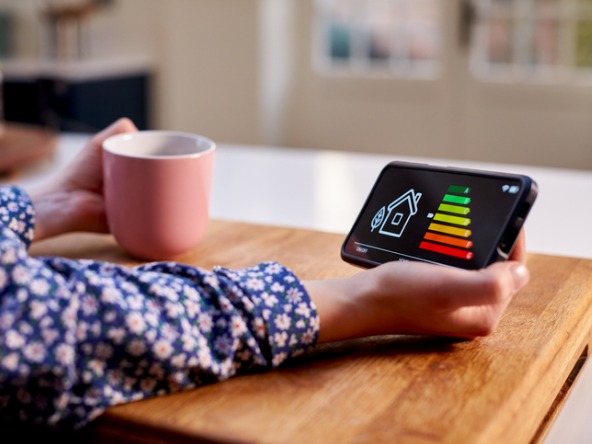UKRI funds household energy usage observatory

The EDOL will be led by the University of Oxford and University College London (UCL) and will generate data on UK homes’ energy usage to inform future policies to reduce carbon emissions.
Domestic energy usage currently accounts for a fifth of UK carbon, and EDOL hopes to track trends in household energy consumption as the UK aims to reach net zero emissions by 2050.
The EDOL will use technologies including artificial intelligence and the internet of things to monitor the energy consumed by different appliances and energy-using activities in daily life at home.
The EDOL will consist of three elements, including an observatory of 2,000 nationally representative UK households equipped with sensors to record the energy they use, with the anonymised data used to better understand patterns of energy demand.
There will also be forensic analyses of sub-samples of homes that have novel or lesser-known forms of energy demand, such as smart charging of electric vehicles, and which could include detailed surveys, interviews and in-depth monitoring.
The final element of the EDOL will be field laboratories of 100 to 200 households in which policies, technologies, business models and other interventions can be tried out and compared to relevant control groups in the observatory.
Dr Kedar Pandya, EPSRC director for cross-council programmes, said: “Accurate, high-resolution data will be crucial to understanding energy usage across UK households and informing new forms of energy usage.
“EDOL will offer unprecedented scale in providing this data, which will support the decisions needed to help us to reduce carbon emissions and make the switch to net zero.”
Dr Philipp Grünewald, from the University of Oxford and co-lead of the EDOL, said: “This collaboration will be unique in providing a detailed, longitudinal resource of UK domestic energy use which will be available to scientists, industry, and policymakers.
“The research will be dynamic, able to respond to a fast-moving technological and policy landscape and will enable us to propose cost-effective smart data solutions and innovation in real-time and at scale.”
Dr Tina Fawcett, of Oxford University and lead for the social research aspect of the project, said: “EDOL is a really important, long-term investment in energy demand research, which will enable us to understand current and future household energy use as never before.
The experiments with EDOL households will allow us to explore who benefits or loses from different social, technical and economic energy interventions.”

We hope you enjoyed this article.
Research Live is published by MRS.
The Market Research Society (MRS) exists to promote and protect the research sector, showcasing how research delivers impact for businesses and government.
Members of MRS enjoy many benefits including tailoured policy guidance, discounts on training and conferences, and access to member-only content.
For example, there's an archive of winning case studies from over a decade of MRS Awards.
Find out more about the benefits of joining MRS here.













0 Comments